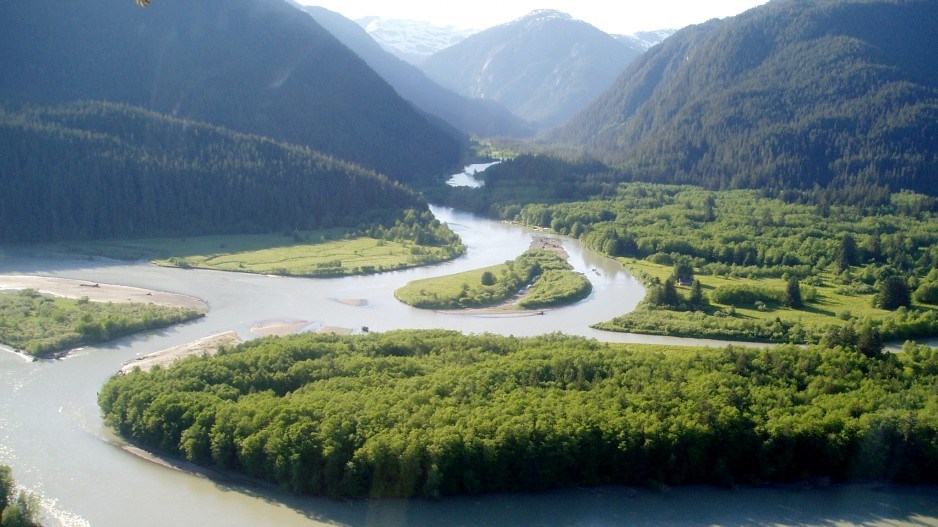The Eskay Creek gold-silver mine revitalization project in Northwestern B.C. may have the support of the Tahltan First Nation, but it’s getting pushback from a consortium of Alaskan First Nations downstream of the proposed mine.
The consortium of Tlingit, Tsimshian, and Alaskan Haida (Prince of Wales Island) under the Southeast Alaska Indigenous Transboundary Commission (SEITC) say they have applied to be admitted to the BC Environmental Assessment Office review process as a participating indigenous nation, and thanks to a 2021 Canadian Supreme Court ruling, regulators may find they have a duty to consult them the same as they do Canadian First Nations.
“If SEITC succeeds, it would be the first time in history that a US-based Tribe is granted Participating Indigenous Nation status in Canada,” the consortium notes in a press release.
The Eskay Creek gold-silver mine is a former underground mine in Northwest B.C. that Skeena Resources Limited (TSX:SKE) wants to resume as an open-pit operation. It is located in the Unuk River watershed, which flows into Alaska.
In 2022, the Tahltan signed a consent agreement, which gives the First Nation joint decision-making powers as part of the environmental review process.
The Alaskan tribal consortium is opposed to the mine, citing its potential impacts on the Unuk River.
“We are talking about poisoning our rivers to help mining companies turn a profit,” SEITC vice-president Rob Sanderson, Jr. said in a press release. “We have relied on and stewarded these rivers for millennia. Canada has no right to endanger our way of life for generations to come.”
Canadian governments have constitutional obligations to consult Canadian First Nations affected by development in their territories.
And thanks to a 2021 Supreme Court decision, they may have a duty to consult American First Nations, as well, if they have historical links to Canada.
In the Desautel case in 2021, the Supreme Court of Canada upheld the right of a member of the Lakes Tribe in Washington state to hunt in B.C. without a licence.
As BIV News reported, Dwight Newman, the Canada research chair in Indigenous rights in constitutional and international law at the University of Saskatchewan, published an analysis of the ruling.
One implication of the ruling might be that it could extend the Canadian government’s duty to consult to Indigenous people outside of Canada, provided they had some historical claims in Canada.
“Governments can face a duty to consult that involves Indigenous communities located entirely outside Canada if those communities have a rights claim within Canada,” Newman wrote.
The SEITC point to the Desautel ruling, in the hope that it will give them some formal standing in the Canadian environmental review process.
“In 2021, the Supreme Court ruled that non-resident Indigenous people have constitutional rights in Canada if they are modern-day successors of past occupants,” SEITC says in its press release.
“Section 35 of Canada’s Constitution Act mandates consultation with Indigenous peoples on projects impacting their ancestral lands.”




